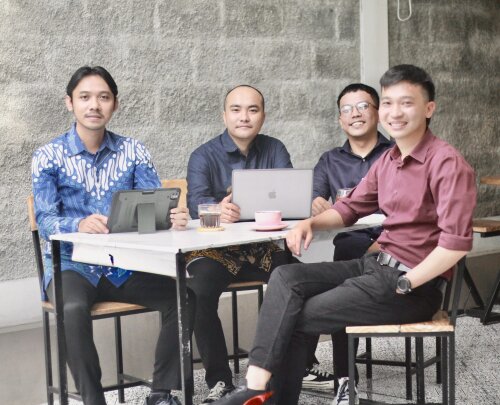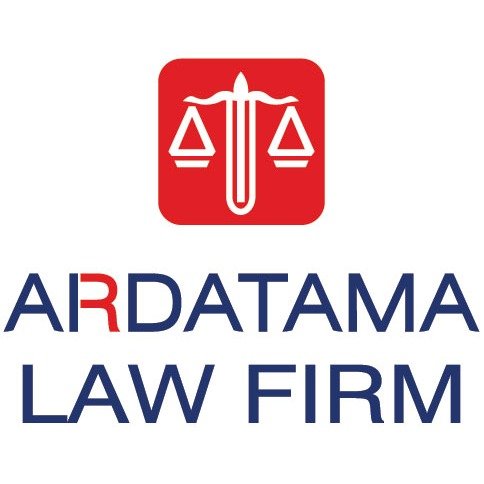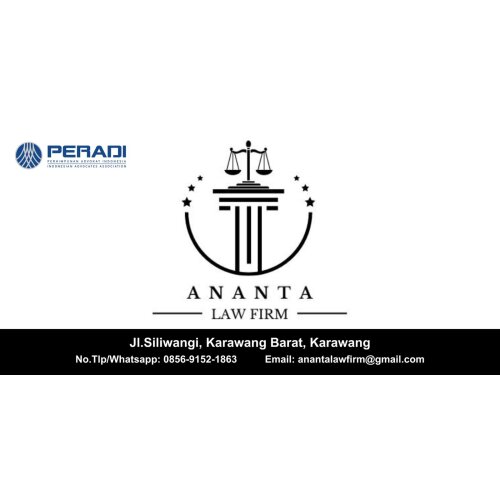Best Debt Capital Markets Lawyers in Indonesia
Share your needs with us, get contacted by law firms.
Free. Takes 2 min.
Or refine your search by selecting a city:
List of the best lawyers in Indonesia

Jiwangga Law Office | Lawyer Surabaya | Advokat Surabaya | Pengacara Surabaya
30 minutes Free ConsultationAbout Debt Capital Markets Law in Indonesia
The Debt Capital Markets (DCM) in Indonesia refer to the system through which companies, government bodies, and other entities raise funds by issuing debt securities such as bonds and medium-term notes. These securities are typically traded on the Indonesian Stock Exchange (IDX) or through private placements. The DCM sector plays a crucial role in supporting the country's economic development by offering alternative financing options for both public and private sectors. The regulatory environment in Indonesia for DCM is governed by several laws and overseen by specific regulatory bodies to ensure market stability and investor protection.
Why You May Need a Lawyer
Navigating the complexities of debt capital markets can be challenging, especially for those new to the Indonesian market. Here are some common scenarios where legal assistance can be essential:
- Structuring and executing bond (debt securities) issuances
- Ensuring compliance with local securities and capital market regulations
- Drafting and negotiating transaction documents
- Managing legal due diligence for potential investors and issuers
- Dealing with cross-border offerings and foreign investor participation
- Handling regulatory filings and disclosures
- Addressing disputes or defaults related to debt instruments
- Advising on tax implications of various capital market transactions
A qualified lawyer can help you avoid legal pitfalls, protect your interests, and ensure that transactions are completed efficiently and legally.
Local Laws Overview
Several key regulations and authorities shape the legal framework for debt capital markets in Indonesia:
- Otoritas Jasa Keuangan (OJK): The Financial Services Authority is the main regulator responsible for overseeing the capital markets, including debt securities.
- Capital Market Law (Law No. 8 of 1995): This law is the primary legislation governing Indonesia's capital markets. It sets out requirements for public offerings, disclosure obligations, and measures to protect investors.
- OJK Regulations: OJK regularly issues regulations on the issuance of debt securities, disclosure standards, and compliance procedures.
- Listing Requirements: The Indonesia Stock Exchange (IDX) stipulates requirements for listing debt securities, addressing issues such as minimum issuance size, issuer eligibility, and disclosure obligations.
- Foreign Ownership and Currency Issues: There are specific rules governing foreign investor participation and the issuance of debt securities in foreign currencies.
- Tax Considerations: Withholding tax, income tax, and other fiscal implications apply to debt security transactions and must be carefully evaluated before proceeding.
Understanding and complying with these laws is essential for anyone seeking to issue, invest in, or trade debt securities in Indonesia.
Frequently Asked Questions
What are the main types of debt securities available in Indonesia?
The most common types include corporate bonds, government bonds, medium-term notes, and municipal bonds. Some are publicly listed, while others are offered through private placement.
Who regulates the Indonesian debt capital markets?
The Otoritas Jasa Keuangan (OJK), or Financial Services Authority, is the primary regulator responsible for Indonesia's capital markets, including debt securities.
Can foreign investors participate in debt capital markets in Indonesia?
Yes, foreign investors can participate, but there are specific rules and restrictions related to currency denomination and maximum ownership limits in certain sectors.
What requirements must be met to issue debt securities publicly?
Issuers must satisfy various requirements including financial soundness, minimum asset thresholds, the appointment of a trustee, thorough information disclosure, and compliance with OJK regulations and prospectus requirements.
Are there ongoing reporting and disclosure obligations for issuers?
Yes, once listed or issued, issuers have to submit regular reports, disclose material information, and comply with ongoing financial and operational disclosure obligations set by the OJK and IDX.
What legal risks are associated with bond issuance in Indonesia?
Risks include non-compliance with regulatory requirements, potential for default, disputes with investors, adverse tax implications, and challenges related to cross-border offerings.
How are disputes regarding debt securities typically resolved?
Disputes may be resolved through litigation in Indonesian courts or, more commonly, through alternative dispute resolution methods such as arbitration, depending on the contractual agreement.
Can Indonesian companies issue debt securities in foreign currencies?
Yes, with OJK approval, companies can issue debt securities denominated in foreign currencies, but additional regulations and requirements will apply.
What is the role of a trustee in bond issuance?
A trustee represents the interests of bondholders, monitors issuers for compliance with terms, and can act on behalf of bondholders in case of default or restructuring.
Is legal due diligence required before issuing debt securities?
Yes, thorough legal due diligence is strongly recommended to identify potential legal, regulatory, and financial risks and to ensure all disclosures are accurate and complete.
Additional Resources
If you need more information or legal support regarding debt capital markets in Indonesia, the following organizations can be valuable resources:
- Otoritas Jasa Keuangan (OJK): The Financial Services Authority offers detailed guides, regulations, and updates relating to capital markets.
- Indonesia Stock Exchange (IDX): IDX provides information about listed bonds, issuance procedures, and regulatory compliance.
- Indonesian Ministry of Finance: The ministry oversees the issuance of government bonds and relevant macroeconomic policies.
- Indonesian Capital Market Legal Consultants Association (HKHPM): An association of legal practitioners specializing in capital markets law.
- Commercial Law Firms: Many established Indonesian law firms have dedicated banking and finance or capital markets practices with English-speaking teams.
Next Steps
If you are considering entering the Indonesian debt capital market or facing a legal issue related to debt securities, it is important to proceed with care:
- Clearly define your objectives, whether you are an issuer, investor, or other stakeholder.
- Gather all relevant documentation, such as financial records, corporate governance documents, and previous agreements.
- Consult with a lawyer or law firm experienced in Indonesian debt capital markets to assess your needs.
- Ensure your legal adviser is familiar with both local regulations and market best practices.
- Stay updated on regulatory developments through official sources like OJK or trusted legal counsel.
Taking these steps early can help you avoid compliance issues, reduce risk, and ensure a smooth and successful transaction or investment in the Indonesian debt capital markets.
Lawzana helps you find the best lawyers and law firms in Indonesia through a curated and pre-screened list of qualified legal professionals. Our platform offers rankings and detailed profiles of attorneys and law firms, allowing you to compare based on practice areas, including Debt Capital Markets, experience, and client feedback.
Each profile includes a description of the firm's areas of practice, client reviews, team members and partners, year of establishment, spoken languages, office locations, contact information, social media presence, and any published articles or resources. Most firms on our platform speak English and are experienced in both local and international legal matters.
Get a quote from top-rated law firms in Indonesia — quickly, securely, and without unnecessary hassle.
Disclaimer:
The information provided on this page is for general informational purposes only and does not constitute legal advice. While we strive to ensure the accuracy and relevance of the content, legal information may change over time, and interpretations of the law can vary. You should always consult with a qualified legal professional for advice specific to your situation.
We disclaim all liability for actions taken or not taken based on the content of this page. If you believe any information is incorrect or outdated, please contact us, and we will review and update it where appropriate.
Browse debt capital markets law firms by city in Indonesia
Refine your search by selecting a city.















